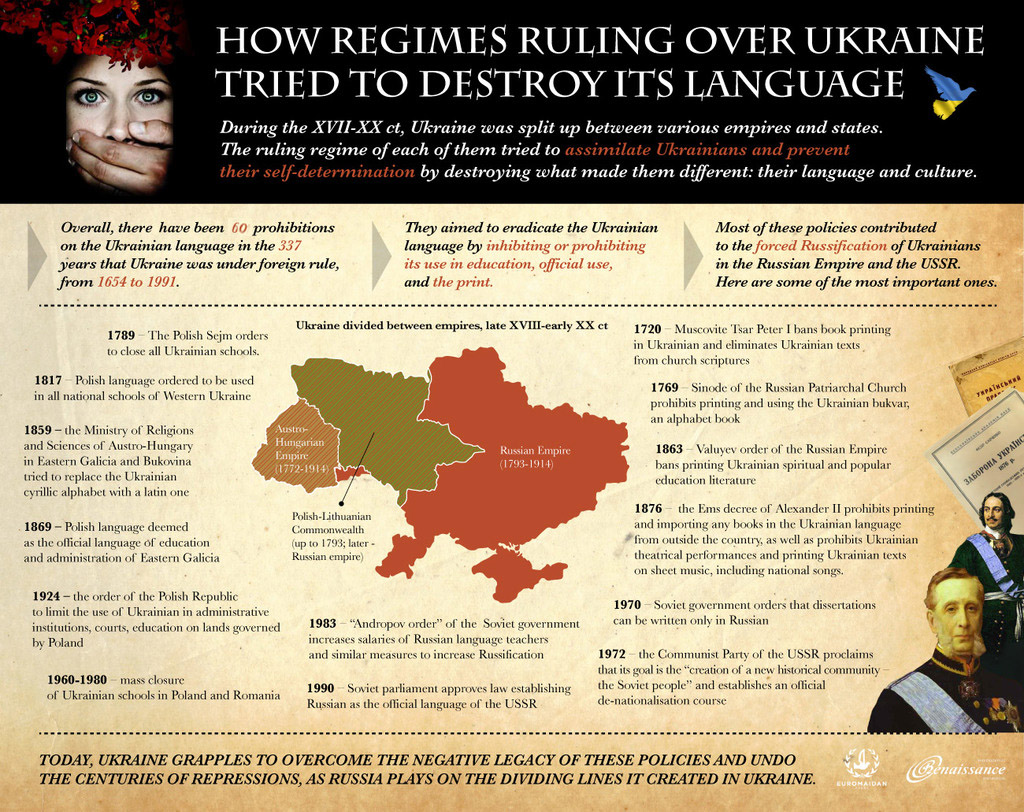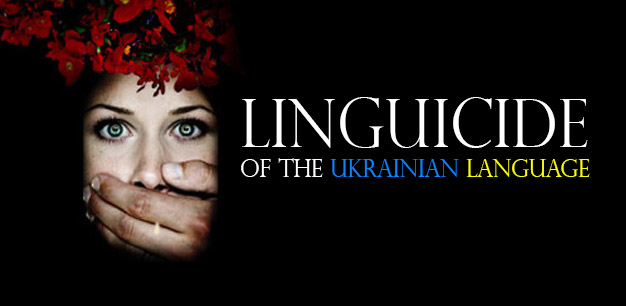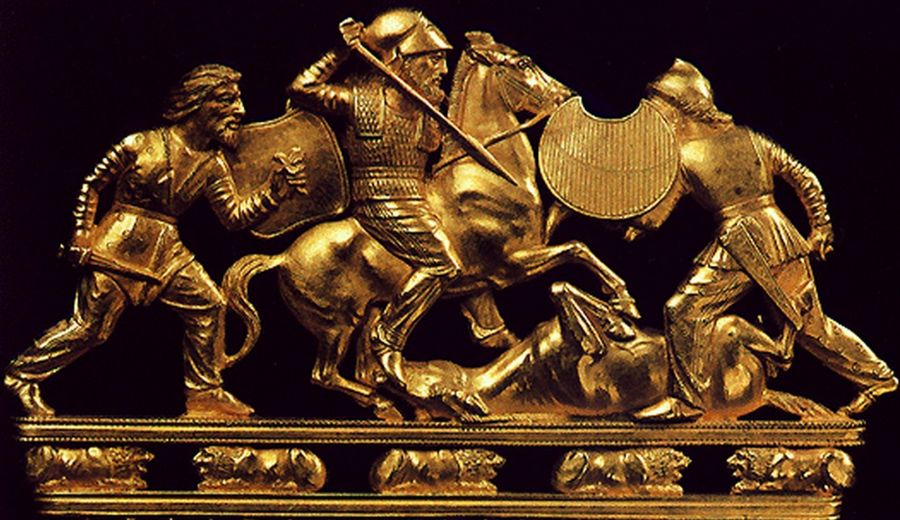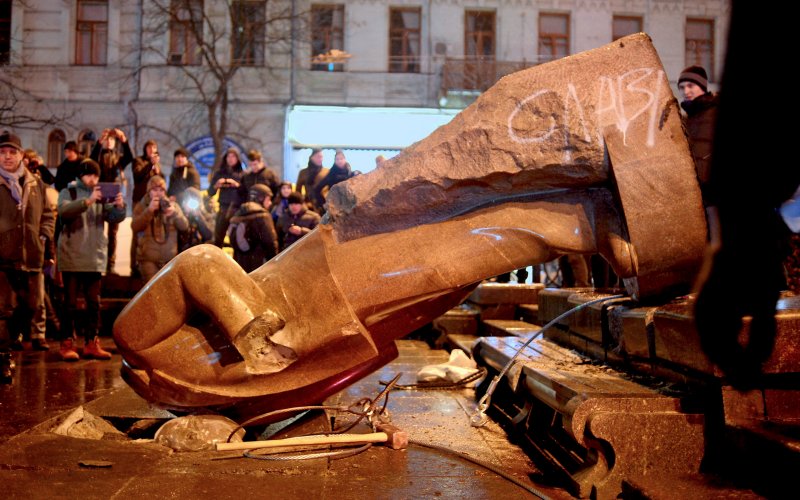During the XVII-XX ct, Ukraine was split up between various empires and states. The ruling regime of each of them tried to assimilate Ukrainians and prevent their self-determination by destroying what made them different: their language and
culture.
Overall, there have been 60 prohibitions on the Ukrainian language in the 337 years that Ukraine was under foreign rule.
They aimed to eradicate the Ukrainian language by inhibiting or prohibiting its use in education, official use, and the print.
Most of these policies contributed to the forced Russification of Ukrainians in the Russian Empire and the USSR.
Today, Ukraine grapples to overcome the negative legacy of these policies and undo the centuries of repressions, as Russia plays on the dividing lines it created in Ukraine.
Here are some of the most important prohibitions of the Ukrainian language by the regimes ruling over Ukraine.

XVII century
1627 – Muscovite Tsar Mikhail, based on the petition by the Moscow Patriarch Filaret, orders to burn all copies of the “Uchitel” Bible published in Ukraine by Kyrylo Stavrovetskyi.
1690 – The Russian Orthodox Church condemns and anathematizes “Kievskiya Noviya Knigi” of Petro Mohyla, Kyrylo Stavrovetskyi, S. Polotskyi, L. Baranovych, A. Radzivilovskyi and others, as well as all Ukrainian-language Christian publications of the Kyiv-Pechersk Lavra.
1696 – The Polish Sejm (of the Polish-Lithuanian Commonwealth) orders to implement the Polish language in courts and institutions of Ukrainian lands under Polish rule.
XVIII century
1720 – Muscovite Tsar Peter I orders to ban book printing in Ukrainian and to eliminate of Ukrainian texts from church scriptures
1729 – Russian Empire. Tsar Peter II orders to rewrite all government orders from Ukrainian into Russian
1731 – Russian Empire. Tsarina Anna Ivanovna orders to confiscate Ukrainian printed books, and to “teach sciences in our own Russian language.” In the secret instruction to the head of Ukraine Prince O. Shakhovskyi in 1734 she ordered to by all means to prevent Ukrainians from marrying Poles and Belorussians, “and to artificially engage them with Russians.”
1763 – Russian Empire. Empress Catherine II orders to ban teaching in Ukrainian in the Kyiv-Mohyla Academy,
1769 – Russian Empire. Sinode of the Russian Patriarchal Church prohibits printing and using the Ukrainian bukvar, an alphabet book.
1775 – Russian Empire. Empress Catherine II orders to ruin the Zaporizhya Sich, Ukraine's remaining military leadership structure, and the closure of Ukrainian schools in Kozak chancelleries.
1789 – Polish-Lithuanian Commonwealth. The Education Committee of the Polish Sejm orders to close all Ukrainian schools.
XIX century
1817 – Austrian Empire. The Polish language is introduced in all national schools of Western Ukraine
1832 – Russian Empire. The education in Russian Empire-controlled Ukraine west of the Dnipro river is reorganized on pan-imperial orders using the Russian language for teaching
1847 – Russian Empire. The Brotherhood of Saints Cyril and Methodius, a political organization seeking autonomy, is banned, leading to an increase in the persecution of the Ukrainian language and culture, and a ban on the best masterpieces of Ukrainian-language authors Shevchenko, Kulish, Kostomarov and others.
1859 – Austrian Empire. The Ministry of Religions and Sciences of Austro-Hungary in Eastern Galicia and Bukovina attempts to replace the Ukrainian Cyrillic alphabet with a Latin one.
1862 – Russian Empire. Free Sunday Ukrainian schools for adults are forced to close.
1863 – Russian Empire. Valuev circular prohibits giving a censure permit to print Ukrainian spiritual and popular education literature: “there is and can not be any separate Maloros ["little Russian", i.e. Ukrainian] language”
1864 – Russian Empire. The Statute regarding primary school is adopted, according to which education should only be carried out in Russian.
1869 – Austro-Hungarian Emire. Polish language is established as the official language of education and administration of Eastern Galicia
1870 – Russian Empire. Russian Minister of Education D. Tolstoi explains that “the end goal of the education of all foreigners has to be Russification.”
1876 – Rusian Empire. The Ems Ukaz of Alexander II prohibits printing and importing from outside the country any Ukrainian language literature, as well as the bans Ukrainian theatrical performances and printing of Ukrainian texts on sheet music, including national songs.
1881 – Russian Empire. Ban on teaching in public schools and making church sermons in the Ukrainian language is adopted.
1884 – Russian Empire. Alexander III bans all Ukrainian theatrical performances in the Ukrainian provinces.
1888 – Russian Empire. Alexander III bans using Ukrainian in all official institutions and baptizing people with Ukrainian names.
1892 – Russian Empire. Ban on translating books from Russian to Ukrainian adopted.
1895 – Russian Empire. Main Press Department prohibits publishing children’s books in the Ukrainian language.
XX century
1908 – Russian Empire. Four years after the Russian Academy of Sciences acknowledges Ukrainian as a language (!), the Senate announces that Ukrainian-language cultural and education activities are harmful to the empire.
1910 – Russian Empire. Stolipin’s government orders to close all Ukrainian cultural associations, publishing houses, bans lecturing in Ukrainian, bans creating any non-Russian clubs.
1911 – Russian Empire. The VII Dvorian Assembly in Moscow issues a decree regarding exclusively Russian-language education and the unacceptability of using any other languages in the schools of the Russian empire.
1914 – Russian Empire. Ban on celebrating prominent Ukrainian poet Taras Shevchenko’s 100th birthday issued; Tsar Nikolai II issues ban on Ukrainian press.
1914, 1916 – Russian Empire. Russification Campaigns were held in Western Ukraine. The Ukrainian language, education, church were once again prohibited.
1922 – USSR. A part of the leadership of the Central Committee of the Russian and Ukrainian (bolshevik) Communist Party proclaims their "theory" of two cultures fighting in Ukraine – the urban (Russian) and the village (Ukrainian) cultures, in which the former must win.
1924 – Polish Republic. Order is issued to limit the use of Ukrainian in administrative institutions, courts, education on lands governed by Poland.
1924 – Romanian Kingdom. Order is issued obliging all “Romanians” who have “lost their mother tongue” to educate their children in Romanian schools only.
1925 – Polish Republic. The Ukrainian “secret” university in Lviv is finally shut down.
1926 – USSR. Stalin sends letter to “Comrade Kaganovich and other members of the Politbureau of the Central Committee of the Communist Party of Ukraine allowing to fight against “national inclinations" and to begin to persecute the activists of the USSR's initial Ukrainization policies.
1933 – USSR. Stalin sends telegram to terminate Ukrainization.
1933 – Romanian Kingdom. The ministry order of 31 December 1929, allowing several hours of Ukrainian language a week in schools with a majority of Ukrainian students, is abolished.
1934 – Romanian Kingdom. The Ministry of Education of Romania issues special order to fire all Ukrainian teachers which demanded the return of the Ukrainian language to schools “for animosity to the state and the Romanian people.”
1938 – USSR. The Council of People’s Commissars and the Central Committee of the Communist Party issues decree “Regarding the compulsory learning of the Russian language in the schools of national republics and regions.”
1947 – Poland. Operation Wisla is held, during which a part of Ukrainians from ethnic Ukrainian lands are relocated and intermixed with Poles in Western Poland in order to speed up their “polonizaation.”
1958 – USSR. Article 20 of the Basis of USSR's Main Law on national education was amended to provide the free choice of language of learning; learning of all languages except Russian (which was compulsory) was by choice of the students’ parents.
1960-1980 – Poland and Romania. Ukrainian schools are massively closed.
1970 – USSR. Order is issued that dissertations can only be written in Russian.
1972 – USSR. Communist Party bans anniversary celebrations of the museum dedicated to prominent Ukrainian writer and founder of the literary language Kotlyarevskyi in Poltava.
1973 – USSR. Anniversary celebrations of Kotlyarevskyi’s masterpiece “The Eneid” are banned.
1972 – USSR. Communist Party issues order “Regarding the preparations for the 50th anniversary of the creation of the USSR,” in which for the first time the “creation of a new historical community – the Soviet people” is proclaimed, marking an official de-nationalisation course.
1978 – USSR. The Central Committee of the Communist Party and the Council of Ministers of the USSR issue order “Regarding the means of further improvement of learning and teaching the Russian language in Soviet republics” (“Brezhnev document”).
1983 – USSR. The Central Committee of the Communist Party and the Council of Ministers of the USSR issue order “Regarding additional measures in improving the learning of the Russian language in public schools and other learning institutions of Soviet republics” (“Andropov order”), which in particular increases the salaries of the teachers of the Russian language and literature by 16%. The collegium of the Ministry of Education of the Ukrainian Socialist Republic issues directive “regarding additional measures of improving the learning or the Russian language in public schools, pedagogical learning institutions, pre-school and post-school institutions of the republic,” aimed at increasing Russification.
1984 – USSR. The Central Committee of the Communist Party and the Council of Ministers of the USSR issue order “Regarding the further improvement of public middle school education of the youth and the improvement of working conditions of public schools” including Russification policies.
1984 – USSR. Russian language teachers start to get 15% salary raise over Ukrainian language teachers in Ukraine.
1984 – USSR. The Ministry of Culture of the USSR issues order regarding the transfer of all documentation in all museums of the USSR to the Russian language.
1989 – USSR. The Central Committee of the Communist Party issues decree “regarding the legal fixation of the Russian language as the official national language.”
1990 – USSR. Law regarding the languages of the people of the USSR is approved, in which Russian is deemed the official language.





